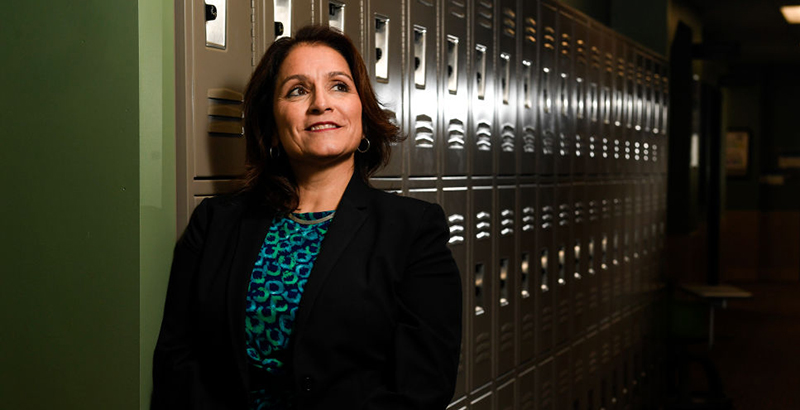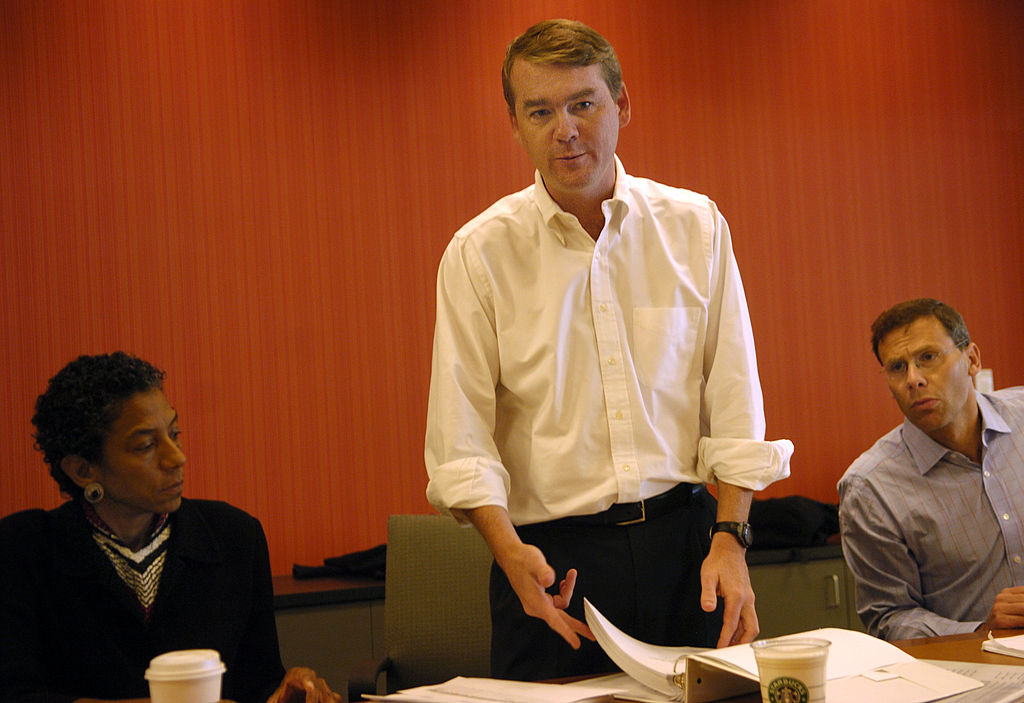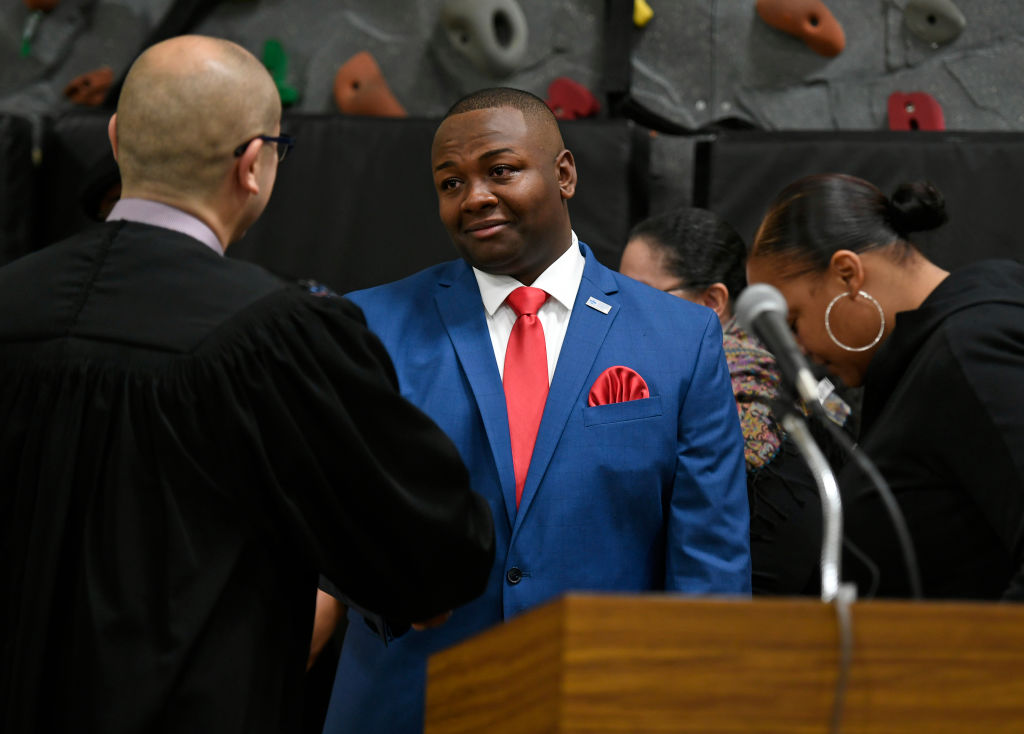For Years, Denver Public Schools Were a Haven for School Reform. After a Superintendent’s Resignation, What Comes Next?

Denver schools began 2021 on a hopeful note, welcoming students back to classrooms after a lengthy digital hibernation.
As in other urban districts, it’s an undertaking that demands pinpoint coordination between principals managing hybrid schedules, teachers still awaiting vaccination shots, and families who aren’t totally sold on giving up remote instruction. But despite the logistical hurdles, and even the worrisome spike in COVID outbreaks at schools and colleges throughout Colorado, some of the anxiety around returning to school is beginning to abate.
If the district’s leaders have begun to address one excruciating hangover from 2020, however, they’ll soon be seeking relief from a second. Atop the myriad complications related to coronavirus-related learning loss, Denver Public Schools found itself rudderless after Superintendent Susana Cordova suddenly resigned in November. Interim superintendent Dwight Jones, appointed through July but not expected to stay on, is spearheading the district’s response to the greatest academic crisis in American history.
Cordova’s departure capped off a year of tension simmering beneath the COVID threat. Denver’s seven-member school board, dominated for over a decade by advocates for charter schools and tough accountability measures, was transformed in 2019 by the election of three newcomers who received support from the local teacher’s union and pledged to rein in the district’s agenda. They stuck to that promise throughout a chaotic 2020, leading education observers to wonder whether they are witnessing the end of one of America’s biggest experiments in urban school reform.
With the search underway for a new superintendent, and more than half the board’s seats up for election this November, one member said he was eager to move past years-old disputes and refocus in the post-COVID era on bolstering educational equity for students who desperately need it.
“Denver is no longer a pro-reform city, nor is it a full-on teacher union city,” said Tay Anderson, one of the three board members elected in 2019. “[The new] superintendent is going to need to be able to walk into the situation understanding that these polarizing sides of education that people like to paint — that narrative died in previous elections, and now we’re moving forward with new visions for the Denver Public Schools.”
But some locals are publicly asking whether a vision truly exists to replace the one that prevailed for over a decade. Paul Teske, dean of the public policy school at the University of Colorado Denver, said that the coming year could reveal whether the local political class had turned permanently against education reform.
“In a way, what we have is a test of the stickiness of the reforms,” Teske said. “Everybody’s reading the tea leaves, at least on the Democratic side, about whether the pendulum’s swung completely to the left, back to the teacher’s union. Or are choice and accountability stronger than we think, and maybe the two can co-exist?”
A ‘rock star’
The district was taken by surprise when then-Superintendent Cordova announced her resignation in November. Three months later, information about the cause of her departure have been sparse, but public outcry has not.
Sympathetic parents and former officials staged a Zoom press conference within days of the announcement, with some alleging that the board pushed Cordova out, and a cadre of Latino community leaders later announced that they were “deeply concerned and dismayed” by the news.
Those sentiments were echoed in reactions from local officials. In a public letter, 14 former board members blamed the loss of Cordova on a hostile work environment fostered by new members who “undermined her leadership and treated her in a way that was neither fair nor democratic.” The all-female signatories also asked whether her two-year tenure would have gone more smoothly had she — like her long-serving and controversial predecessors, Tom Boasberg and Michael Bennet — been a white man.
An even more explosive exchange was triggered later in November, when Denver Mayor Michael Hancock and former Mayor Federico Pena weighed in. In a jarring show of combativeness, they openly accused the “dysfunctional” school board of undermining their superintendent and demanded they step aside from selecting her replacement.

The first Latina superintendent of a majority-Latino district, Cordova was tipped by some as a potential candidate to replace Betsy DeVos as U.S. secretary of education. But her tenure was marked by severe challenges, beginning with a teacher’s strike that shut down schools just a few months after she was appointed in 2018. The teachers returned to work fairly quickly, but only after securing a salary increase that was financed partly by sweeping layoffs at the central office. (A representative of the local teacher’s union, the Denver Classroom Teachers Association, declined comment for this article.)
The strike was part of a local insurgency against the wave of changes instituted during the decade-long Boasberg era, including a swift expansion of the city’s charter sector and the closure of several schools that were struggling academically. Cordova was unanimously selected to succeed Boasberg, but as a high-ranking figure within his former cabinet, she struggled to escape her predecessor’s shadow. Van Schoales, president of the reform advocacy organization A+ Colorado, said that it was “totally obvious” that her tenure as superintendent was shortened by a poor relationship with the school board.
“To me, it’s no wonder that people around the country would see her as a rock star,” said Schoales. “But to this board, anybody that was in the Boasberg administration — even if, within the administration, she was often fighting to improve neighborhood schools — was screwed.”
Cordova, who took a deputy superintendent position in Dallas in January, declined to comment and has revealed little publicly about her reasons for quitting. Whatever the contributing factors, some believe that she was discouraged after the release of her first and only performance evaluation in August. The middling grades she received — along with the board’s stated desire to purge a “lingering collective mindset” associated with the previous, reform-minded regime, perhaps by “eliminating redundancies” among her staff — raised the question of whether her contract would be renewed at the end of the 2021-22 school year.
Mark Ferrandino, who served for six years as the district’s chief financial officer, left that position to lead the Colorado Department of Revenue just days after Cordova’s resignation. In an interview with The 74, he said the tone of the evaluation “was different than what I heard from members in our interactions.”
“The review seemed to be more about her predecessor than her job, and the inability to move past what was and to look at what was currently in progress,” Ferrandino recalled.
Board member Tay Anderson said that claims of Cordova being thwarted by his colleagues were “lies and rumors,” and that the former board members who had co-signed the open letter “undermined the very offices that they once held.”
“The majority of the board members that signed on to that letter were all board members with education reform ties that were defeated in elections, or that retired and their seats were eventually turned over to new people. It’s okay for those folks to have opinions, but at the end of the day, we have a job to do, and that’s for our students.”
Different visions
Whatever frustrations existed between the board and its former superintendent, there are strong indications that Denver Public Schools will continue moving in a different direction than the one it charted for over a decade.
The city’s charter sector, which enrolls over 20 percent of its students, is one area that will almost certainly be impacted. Just a few weeks before Cordova’s resignation, the board drew headlines by voting to delay the opening of a new high school from the high-performing DSST Public Schools (formerly known as the Denver School of Science and Technology) network. The move was later overruled by members of the Colorado state board of education, whose Democratic chair called the proposed delay “extremely troubling.”
Earlier in the year, the board abolished the city’s school performance framework, which was used both as an informational tool for parents exercising school choice and as a trigger for district interventions based on academic underperformance. A remnant of the Boasberg era, the framework was widely considered technocratic and convoluted, even by those in the reform camp. But while parents can still consult school ratings issued by the state, there is little sense of what local metric, if any, will replace the one that was discarded.
The spread of coronavirus has muddled the transition by introducing policy complications that couldn’t have been imagined during the 2019 elections. With schools closed for most of 2020, some families began forming learning pods to compensate; in response, the board posted a letter discouraging parents from taking that step, warning of possible “long-term negative implications for public education and social justice.”
The chaos and improvisation imposed by COVID-19 also made it difficult to assess the effectiveness of Cordova and her team, Anderson noted, especially as board members set out to keep their campaign promises.
“I got elected in Nov. 2019, and the pandemic began in March,” he said. “Through the time that we didn’t have a pandemic, we had other district issues we were working on, and I was trying to fulfill my 100-day plan. So we weren’t able to see Superintendent Cordova govern outside of a crisis.”

One question, complicated over the past year by the exigencies of public health, is whether the current board will propose a comprehensive vision for how to improve school performance. The district once adhered to such a roadmap, dubbed Denver Plan 2020, but it expired at the end of the year. The board began developing a new plan last January, but soon delayed the process as they pivoted to dealing with the pandemic. At the same time, members pushed forward last year on a number of progressive initiatives unrelated to COVID, including ending its contract with the Denver police department and approving a new principals’ union.
Ferrandino, the district’s former chief financial officer, said he agreed with the decision to temporarily punt on long-term planning, arguing that lockdown conditions would have made it too challenging to solicit appropriate input from the public. But the broad shifts sought by the board would require more consensus and communication, he added.
“If you’re changing things, you need four [members] to give clear direction,” he observed. “Big change in any organization needs focus. When you have 20 priorities you have no priorities, because you’re not sending a clear message of what people should focus on.”
Magnifying the ambiguity is the constant stressor of COVID. While most major school districts are plotting a return to normal this spring, the University of Colorado’s Teske said that Denver’s recovery process seems to have shunted huge substantive issues of both personnel and policy into the footlights.
“It’s been weird. Well, I don’t know if it’s been weirder than everywhere else in the country, but with all the background stuff going on, it seems like everything right now is on pause to deal with [COVID].”
Get stories like these delivered straight to your inbox. Sign up for The 74 Newsletter

;)

